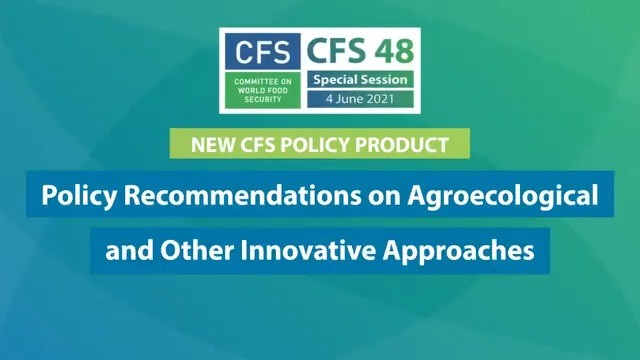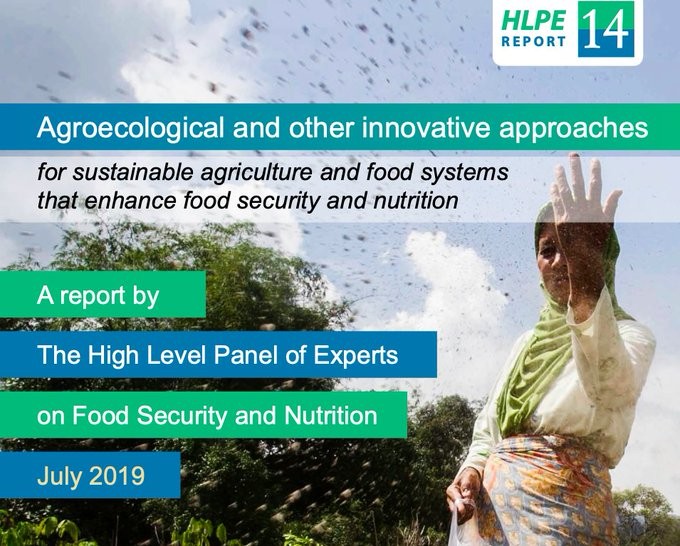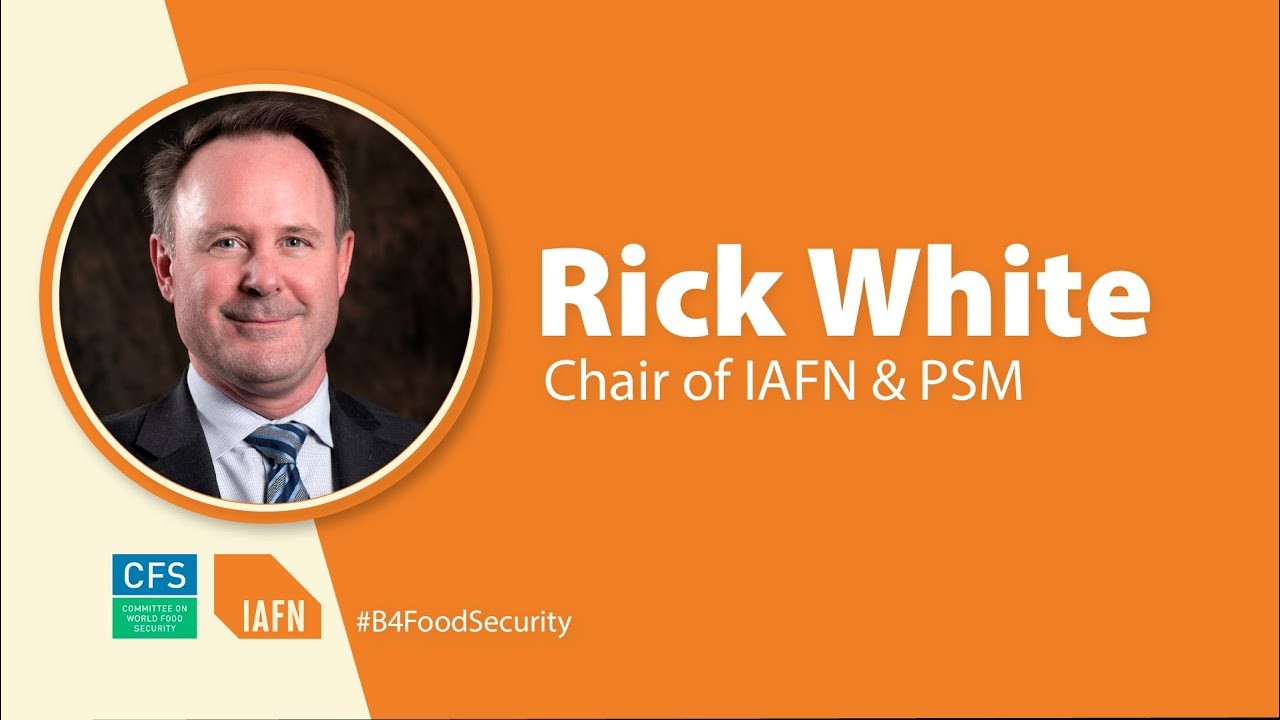ECOSOC at 80: Renewing Multilateralism in an Age of Global Uncertainty
On 23 January, the United Nations Economic and Social Council (ECOSOC) convened a commemorative session…
On June 4 2021, the Committee on World Food Security (CFS) had their 48th special session. In the bid to take bold and transformational steps to move the world on to a sustainable and resilient path, the committee met to endorse the Policy Recommendations on Agroecological and other Innovative Approaches for Sustainable Agriculture and Food Systems that Enhance Food Security and Nutrition. Among the challenges is the fast-growing numbers of undernourished people in the world. It is estimated that 690 million people are suffering from chronic undernourishment, 135 million are faced with acute food insecurity, and 2 billion suffer from moderate food insecurity. Unsustainable agriculture and food systems are putting pressure on the world natural resources and, in addition, extreme poverty among the rural populations and COVID-19 remain a global threat to food security.
transformational steps to move the world on to a sustainable and resilient path, the committee met to endorse the Policy Recommendations on Agroecological and other Innovative Approaches for Sustainable Agriculture and Food Systems that Enhance Food Security and Nutrition. Among the challenges is the fast-growing numbers of undernourished people in the world. It is estimated that 690 million people are suffering from chronic undernourishment, 135 million are faced with acute food insecurity, and 2 billion suffer from moderate food insecurity. Unsustainable agriculture and food systems are putting pressure on the world natural resources and, in addition, extreme poverty among the rural populations and COVID-19 remain a global threat to food security.
At the opening ceremony, Dr. Qu Dongyu, FAO Director-General, in a statement emphasized how the pandemic highlighted the importance of resilience and diversification and the urgency for integrating economic, social and environmental sustainability. He commended the CFS and its High-Level panel of experts for their tremendous work. He added that their policy recommendations could contribute to the debate at the next UN Food systems summit. In his opinion it was time to work in harmony and solidarity to redesign the world’s food system them make them more efficient, inclusive, resilient and sustainable.
The CFS, its member states, the High-level Panel of Experts (HPLE), Private Sector and Civil Society Mechanisms and other stakeholders from research and academia have worked together to develop agroecological and other innovative approaches for sustainable agriculture and food systems that enhance food security and nutrition. It was noted that a context- appropriate pathways towards food systems transformation was key and it is necessary to establish the needed metrics to better measure production, performance and consumption. The innovative approaches discussed go beyond technological revolutions to a well- articulated general set of practices and methods.
stakeholders from research and academia have worked together to develop agroecological and other innovative approaches for sustainable agriculture and food systems that enhance food security and nutrition. It was noted that a context- appropriate pathways towards food systems transformation was key and it is necessary to establish the needed metrics to better measure production, performance and consumption. The innovative approaches discussed go beyond technological revolutions to a well- articulated general set of practices and methods.
To bridge the gaps of inequalities around the world food systems, the Policy Recommendations include the following:
IAFN & PSM remain committed to the uptake and implementation of these policy recommendations. Although there is no single approach that will be applicable across board, the network, in the words of IAFN & PSM Chair Rick White, encourages farmers and members to choose the approach that best suits them. As Emerging continues to equip farmers to discuss and negotiate on issues that are pivotal to the development of the agricultural sector, we applaud the successful endorsement of the policy recommendations and look forward to highlighting the various approaches which will be employed by the private sector.
approach that will be applicable across board, the network, in the words of IAFN & PSM Chair Rick White, encourages farmers and members to choose the approach that best suits them. As Emerging continues to equip farmers to discuss and negotiate on issues that are pivotal to the development of the agricultural sector, we applaud the successful endorsement of the policy recommendations and look forward to highlighting the various approaches which will be employed by the private sector.